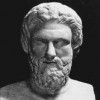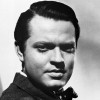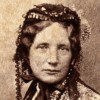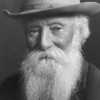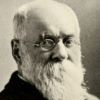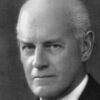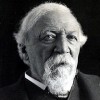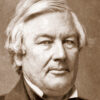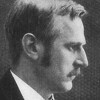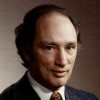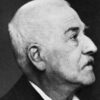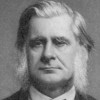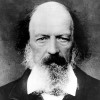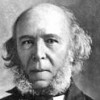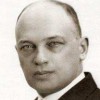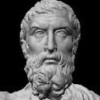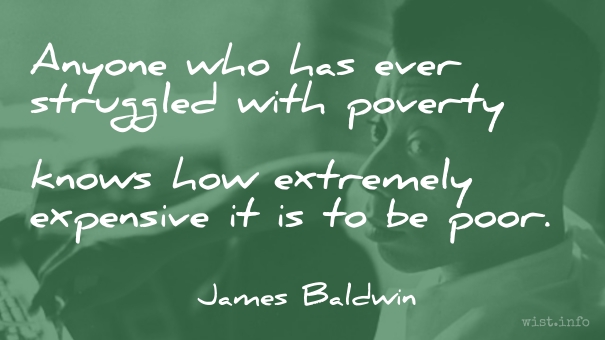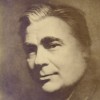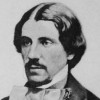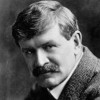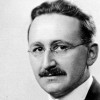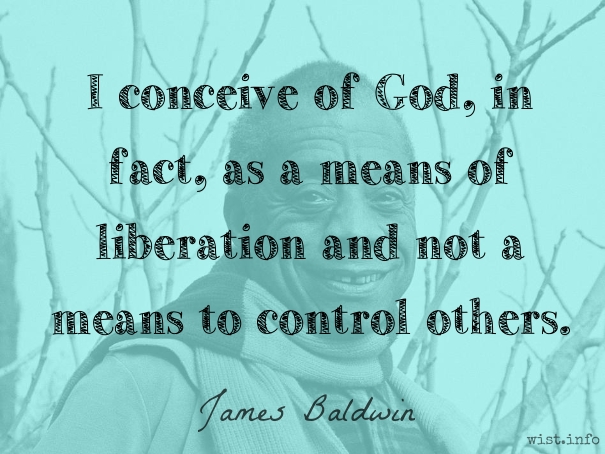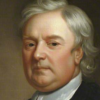Political parties exist to secure responsible government and to execute the will of the people. From these great tasks both of the old parties have turned aside. Instead of instruments to promote the general welfare, they have become the tools of corrupt interests which use them impartially to serve their selfish purposes. Behind the ostensible government sits enthroned an invisible government owing no allegiance and acknowledging no responsibility to the people. To destroy this invisible government, to dissolve the unholy alliance between corrupt business and corrupt politics is the first task of the statesmanship of the day.
Theodore Roosevelt (1858-1919) American politician, statesman, conservationist, writer, US President (1901-1909)
Progressive Party Platform (Aug 1912)
(Source)
Party platform attributed to Roosevelt. Also restated by him in An Autobiography, ch. 15 (1913):Behind the ostensible Government sits enthroned an invisible Government, owing no allegiance and acknowledging no responsibility to the people. To destroy this invisible Government, to dissolve the unholy alliance between corrupt business and corrupt politics, is the first task of the statesmanship of the day. ... This country belongs to the people. Its resources, its business, its laws, its institutions, should be utilized, maintained, or altered in whatever manner will best promote the general interest.Released as a sound recording, "The Progressive Covenant With The People," during the campaign for locations where Roosevelt was unable to visit to speak.
PISTHETAERUS: Undoubtedly; words give wings to the mind and make a man soar to heaven.
Aristophanes (c. 450-c. 388 BC) Athenian comedic playwright
The Birds, l. 1447-48 (414 BC) [tr. O’Neill 1938)
Full text.
The wit makes fun of other persons; the satirist makes fun of the world; the humorist makes fun of himself, but in so doing, he identifies himself with people — that is, people everywhere, not for the purpose of taking them apart, but simply revealing their true nature.
Ladies and gentlemen, I have a grave announcement to make. Incredible as it may seem, strange beings who landed in New Jersey tonight are the vanguard of an invading army from Mars.
The Bill of Rights was designed trustfully to prohibit forever two of the favorite crimes of all known governments: the seizure of private property without adequate compensation and the invasion of the citizen’s liberty without justifiable cause and due process.
Human life consists in mutual service. No grief, pain, misfortune, or “broken heart,” is excuse for cutting off one’s life while any power of service remains. But when all usefulness is over, when one is assured of an unavoidable and imminent death, it is the simplest of human rights to choose a quick and easy death in place of a slow and horrible one.
I regret that I am not clear as to what you intend by arisch. I am not of Aryan extraction: that is Indo-Iranian; as far as I am aware none of my ancestors spoke Hindustani, Persian, Gypsy, or any related dialects. But if I am to understand that you are enquiring whether I am of Jewish origin, I can only reply that I regret that I appear to have no ancestors of that gifted people. My great-great-grandfather came to England in the eighteenth century from Germany: the main part of my descent is therefore purely English, and I am an English subject — which should be sufficient. I have been accustomed, nonetheless, to regard my German name with pride, and continued to do so throughout the period of the late regrettable war, in which I served in the English army. I cannot, however, forbear to comment that if impertinent and irrelevant inquiries of this sort are to become the rule in matters of literature, then the time is not far distant when a German name will no longer be a source of pride.
J.R.R. Tolkien (1892-1973) English writer, fabulist, philologist, academic [John Ronald Reuel Tolkien]
Letter to Rütten & Loening Publishing (1938-07-25)
(Source)
In response to the inquiry by a German publishing house about his ancestry, prior to their releasing a German-language edition of The Hobbit. Tolkien drafted two letters to Stanley Unwin, his agent. Unwin forwarded the other one, which refused to answer the question at all.
The Hobbit did not appear in German until 1957.
To the excessively fearful the chief characteristic of power is its arbitrariness. Man had to gain enormously in confidence before he could conceive an all-powerful God who obeys his own laws.
Two deputies, one of whom is a radical, have more in common than two radicals, one of whom is a deputy.
[Il y a moins de différence entre deux députés dont l’un est révolutionnaire et l’autre ne l’est pas, qu’entre deux révolutionnaires, dont l’un est député et l’autre ne l’est pas.]
Robert de Jouvenel (1882–1924) French journalist
La République des Camarades, Part 1, ch. 1 (1914)
Virtue, then, is a state involving rational choice, consisting in a mean relative to us and determined by reason — the reason, that is, by reference to which the practically wise person would determine it. It is a mean between two vices, one of excess, the other of deficiency. It is a mean also in that some vices fall short of what is right in feelings and actions, and others exceed it, while virtue both attains and chooses the mean.
[ἔστιν ἄρα ἡ ἀρετὴ ἕξις προαιρετική, ἐν μεσότητι οὖσα τῇ πρὸς ἡμᾶς, ὡρισμένῃ λόγῳ καὶ ᾧ ἂν ὁ φρόνιμος ὁρίσειεν. μεσότης δὲ δύο κακιῶν, τῆς μὲν καθ᾽ ὑπερβολὴν τῆς δὲ κατ᾽ ἔλλειψιν: καὶ ἔτι τῷ τὰς μὲν ἐλλείπειν τὰς δ᾽ ὑπερβάλλειν τοῦ δέοντος ἔν τε τοῖς πάθεσι καὶ ἐν ταῖς πράξεσι, τὴν δ᾽ ἀρετὴν τὸ μέσον καὶ εὑρίσκειν καὶ αἱρεῖσθαι.]
Aristotle (384-322 BC) Greek philosopher
Nicomachean Ethics [Ἠθικὰ Νικομάχεια], Book 2, ch. 5 (2.6.15-16) / 1106b.35 (c. 325 BC) [tr. Crisp (2000)]
(Source)
(Source (Greek)). Alternate translations:Virtue then is “a state apt to exercise deliberate choice, being in the relative mean, determined by reason, and as the man of practical wisdom would determine.” It is a middle state between too faulty ones, in the way of excess on one side and of defect on the other: and it is so moreover, because the faulty states on one side fall short of, and those on the other exceed, what is right, both in the case of the feelings and the actions; but Virtue finds, and when found adopts, the mean.
[tr. Chase (1847)]Moral virtue, then, is a certain formed state, or habit of purpose, which conforms to the relative mean in action, and which is determined to that mean by reason, or as the prudent man would determine it. And it is the mean between two vices, one of which consists in excess, and the other in defect. So that vices sometimes fall short of what is right in our emotions and in our actions, and sometimes exceed it, while virtue fines the mean and chooses it.
[tr. Williams (1869)]Virtue then is a state of deliberate moral purpose consisting in a mean that is relative to ourselves, the mean being determined by reason, or as a prudent man would determine it. It is a mean state firstly as lying between two vices, the vice of excess on the one hand, and the vice of deficiency on the other, and secondly because, whereas vices either fall short of or go beyond what is proper in the emotions and actions, virtue not only discovers but embraces the mean.
[tr. Welldon (1892)]Virtue, then, is a habit or trained faculty of choice, the characteristic of which lies in moderation or observance of the mean relatively to the persons concerned, as determined by reason, i.e. by the reason by which the prudent man would determine it. And it is a moderation, firstly, inasmuch as it comes in the middle or mean between two vices, one on the side of excess, the other on the side of defect; and, secondly, inasmuch as, while these vices fall short of or exceed the due measure in feeling and in action, it finds and chooses the mean, middling, or moderate amount.
[tr. Peters (1893)]Virtue, then, is a state of character concerned with choice, lying in a mean, i.e. the mean relative to us, this being determined by a rational principle, and by that principle by which the man of practical wisdom would determine it. Now it is a mean between two vices, that which depends on excess and that which depends on defect; and again it is a mean because the vices respectively fall short of or exceed what is right in both passions and actions, while virtue both finds and chooses that which is intermediate.
[tr. Ross (1908)]Virtue then is a settled disposition of the mind determining the choice of actions and emotions, consisting essentially in the observance of the mean relative to us, this being determined by principle, that is, as the prudent man would determine it. And it is a mean state between two vices, one of excess and one of defect. Furthermore, it is a mean state in that whereas the vices either fall short of or exceed what is right in feelings and in actions, virtue ascertains and adopts the mean.
[tr. Rackham (1934)]Virtue, then, is a deliberately choosing state, which is in a medial condition in relation to us, one defined by a reason and the one by which a practically-wise person would define it. Also, it is a medial condition between two vices, one of excess and the other of deficiency. Further, it is also such a condition because some vices are deficient in relation to what the relevant feelings and actions should be and other are excessive, but virtue both finds the mean and chooses it.
[tr. Reeve (1948)][Ethical] virtue, then, is a habit, disposed toward action by deliberate choice, being at the mean relative to us, and defined by reason and as a prudent man would define it. It is a mean between two vices, one by excess and the other by deficiency; and while some of the vices exceed while the others are deficient in what is right in feelings and actions, virtue finds and chooses the mean.
[tr. Apostle (1975)]So virtue is a purposive disposition, lying in a mean that is relative to us and determined by a rational principle, and by that which a prudent man would use to determine it. It is a mean between two kinds of vice, one of excess and the other of deficiency; and also for this reason, that whereas these vices fall short of or exceed the right measure in both feelings and actions, virtue discovers the mean and chooses it.
[tr. Thomson/Tredennick (1976)]Virtue, therefore, is a characteristic marked by choice, residing in the mean relative to us, a characteristic defined by reason and as the prudent person would define it. Virtue is also a mean with respect to two vices, the one vice related to excess, the other to deficiency; and further, it is a mean because some vices fall short of and others exceed what should be the case in both passions and actions, whereas virtue discovers and chooses the middle term.
[tr. Bartlett/Collins (2011)]
We should judge a man much more surely from what he dreams than from what he thinks.
[On jugerait bien plus sûrement un homme d’après ce qu’il rêve que d’après ce qu’il pense.]
In whatsoever Condition thou art, still ask thyself, What would my blessed Savior have thought, said, and done in this Case.
Thomas Fuller (1654-1734) English physician, preacher, aphorist, writer
Introductio ad Prudentiam, Vol. 1, # 693 (1725)
(Source)
"What Would Jesus Do?"
Censorship is telling a man he can’t eat steak because a baby can’t chew it.
Mark Twain (1835-1910) American writer [pseud. of Samuel Clemens]
(Spurious)
Unsourced in Twain's writings. Likely derived from this Heinlein quotation.
A sound rule of historical evidences is that while assertions should be treated with critical doubt, admissions are likely to be reliable.
I’d hate to be in those [slum] conditions and I’ll tell you if I were in those conditions, you’d have more trouble than you have already because I’ve got enough spark left in me to lead a mighty good revolt.
We are, in truth, more than half what we are by imitation. The great point is, to choose good models and to study them with care.
Lord Chesterfield (1694-1773) English statesman, wit [Philip Dormer Stanhope]
Letter to his son, #214 (18 Jan 1750)
(Source)
Imitate what is good wheresoever thou findest it, though among Turks, Jews, Pagans, or even Papists. And abominate Evil, though in thy nearest Relation.
Thomas Fuller (1654-1734) English physician, preacher, aphorist, writer
Introductio ad Prudentiam, Vol. 1, # 780 (1725)
(Source)
Editing should be, especially in the case of old writers, a counseling rather than a collaborating task. The tendency of the writer-editor to collaborate is natural, but he should say to himself, “How can I help this writer to say it better in his own style?” and avoid “How can I show him how I would write it, if it were my piece?”
The French want no-one to be their superior. The English want inferiors. The Frenchman constantly raises his eyes above him with anxiety. The Englishman lowers his beneath him with satisfaction.
Society in every state is a blessing, but Government, even in its best state, is but a necessary evil; in its worst state an intolerable one: for when we suffer, or are exposed to the same miseries by a Government, which we might expect in a country without Government, our calamity is heightened by reflecting that we furnish the means by which we suffer.
Thomas Paine (1737-1809) American political philosopher and writer
Common Sense, “On the Origin and Design of Government in General” (14 Feb 1776)
(Source)
Support your party, if you have one, but do not think all the good men are in it, and all the bad ones outside it.
Charles A. Dana (1819-1897) American journalist, publisher, author, government official
Code of Rules for New York Sun journalists, #7
Full text.
I honestly beleave it iz better tew know nothing than two know what ain’t so.
[I honestly believe it is better to know nothing than to know what ain’t so.]
Josh Billings (1818-1885) American humorist, aphorist [pseud. of Henry Wheeler Shaw]
Everybody’s Friend, Or; Josh Billing’s Encyclopedia and Proverbial Philosophy of Wit and Humor, “Sollum Thoughts” (1874)
(Source)
This was Billings signature aphorism, and he used variations on multiple occasions. Variants and evolutions have also been misattributed to Will Rogers, Mark Twain, and Artemus Ward, sometimes from their own paraphrases of Billings. Some variations (usually without specific citations) include:In a similar vein, Billings wrote, "Wisdum don't konsist in knowing more that iz new, but in knowing less that iz false. [Wisdom doesn't consist in knowing more that is new, but in knowing less than is false.]" [Source]
- "The trouble with people is not that they don't know but that they know so much that ain't so."
- "It ain't what you don't know that gets you into trouble. It's what you know for sure that just ain't so."
- "You’d better not know so much, than know so many things that ain’t so."
More discussion about this quotation:
- It Ain’t What You Don’t Know That Gets You Into Trouble. It’s What You Know for Sure That Just Ain’t So – Quote Investigator
- Ralph Keyes, The Quote Verifier (2006)
- Ralph Keyes, Nice Guys Finish Seventh (1992)
- James Billington, Respectfully Yours (1993)
- Daniel Levitin, A Field Guide to Lies, Deluxe Ed. (2016)
Far over the misty mountains cold
To dungeons deep and caverns old
We must away ere break of day
To seek the pale enchanted gold.The dwarves of yore made mighty spells,
While hammers fell like ringing bells
In places deep, where dark things sleep,
In hollow halls beneath the fells.For ancient king and elvish lord
There many a gleaming golden hoard
They shaped and wrought, and light they caught
To hide in gems on hilt of sword.On silver necklaces they strung
The flowering stars, on crowns they hung
The dragon-fire, in twisted wire
They meshed the light of moon and sun.Far over the misty mountains cold
To dungeons deep and caverns old
We must away, ere break of day,
To claim our long-forgotten gold.Goblets they carved there for themselves
And harps of gold; where no man delves
There lay they long, and many a song
Was sung unheard by men or elves.The pines were roaring on the height,
The winds were moaning in the night.
The fire was red, it flaming spread;
The trees like torches blazed with light.The bells were ringing in the dale
And men they looked up with faces pale;
The dragon’s ire more fierce than fire
Laid low their towers and houses frail.The mountain smoked beneath the moon;
The dwarves they heard the tramp of doom.
They fled their hall to dying fall
Beneath his feet, beneath the moon.Far over the misty mountains grim
To dungeons deep and caverns dim
We must away, ere break of day,
To win our harps and gold from him!J.R.R. Tolkien (1892-1973) English writer, fabulist, philologist, academic [John Ronald Reuel Tolkien]
The Hobbit, ch. 1 “An Unexpected Party” [Thorin, et al.] (1937)
(Source)
Song sung by Thorin Oakenshield and the rest of his dwarvish company.
We take for granted the need to escape the self. Yet the self can also be a refuge. In totalitarian countries the great hunger is for private life. Absorption in the minutiae of an individual existence is the only refuge from the apocalyptic madhouse staged by maniacal saviors of humanity.
Persuasion is better than force.
The story of each stone leads back to a mountain.
W. S. Merwin (1927-2019) American poet [William Stanley Merwin]
Houses and Travellers (1977)
Virtues, however, we acquire by first exercising them. The same is true with skills, since what we need to learn before doing, we learn by doing; for example, we become builders by building, and lyre-players by playing the lyre. So too we become just by doing just actions, temperate by temperate actions, and courageous by courageous actions.
[τὰς δ’ ἀρετὰς λαμβάνομεν ἐνεργήσαντες πρότερον, ὥσπερ καὶ ἐπὶ τῶν ἄλλων τεχνῶν· ἃ γὰρ δεῖ μαθόντας ποιεῖν, ταῦτα ποιοῦντες μανθάνομεν, οἷον οἰκοδομοῦντες οἰκοδόμοι γίνονται καὶ κιθαρίζοντες κιθαρισταί· οὕτω δὴ καὶ τὰ μὲν δίκαια πράττοντες δίκαιοι γινόμεθα, τὰ δὲ σώφρονα σώφρονες, τὰ δ’ ἀνδρεῖα ἀνδρεῖοι.]
Aristotle (384-322 BC) Greek philosopher
Nicomachean Ethics [Ἠθικὰ Νικομάχεια], Book 2, ch. 1 (2.1, 1103a.32ff) (c. 325 BC) [tr. Crisp (2000)]
(Source)
(Source (Greek)). Alternate translations:But the Virtues we get by first performing single acts of working, which, again, is the case of other things, as the arts for instance; for what we have to make when we have learned how, these we learn how to make by making: men come to be builders, for instance, by building; harp-players, by playing on the harp: exactly so, by doing just actions we come to be just; by doing the actions of self-mastery we come to be perfected in self-mastery; and by doing brave actions brave.
[tr. Chase (1847)]But the virtues we acquire by previous practice of their acts, exactly as we acquire our knowledge of the various arts. For, in the case of the arts, that which we have to be taught to do, that we learn by doing it. We become masons, for instance, by building; and harpers b y playing upon the harp. And so, in like manner, we become just by doing what is just, temperate by doing what is temperate, and brave by doing what is brave.
[tr. Williams (1869), sec. 23]But the virtues we acquire by first exercising them, as is the case with all the arts, for it is by doing what we ought to do when we have learnt the arts that we learn the arts themselves; we become e.g. builders by building and harpists by playing the harp. Similarly it is by doing just acts that we become just, by doing temperate acts that we become temperate, by doing courageous acts that we become courageous.
[tr. Welldon (1892)]But the virtues we acquire by doing the acts, as is the case with the arts too. We learn an art by doing that which we wish to do when we have learned it; we become builders by building, and harpers by harping. And so by doing just acts we become just, and by doing acts of temperance and courage we become temperate and courageous.
[tr. Peters (1893)]But the virtues we get by first exercising them, as also happens in the case of the arts as well. For the things we have to learn before we can do them, we learn by doing them, e.g. men become builders by building and lyreplayers by playing the lyre; so too we become just by doing just acts, temperate by doing temperate acts, brave by doing brave acts.
[tr. Ross (1908)]The virtues on the other hand we acquire by first having actually practised them, just as we do the arts. We learn an art or craft by doing the things that we shall have to do when we have learnt it: for instance, men become builders by building houses, harpers by playing on the harp. Similarly we become just by doing just acts, temperate by doing temperate acts, brave by doing brave acts.
[tr. Rackham (1934), ch. 1, sec. 4]The virtues, by contrast, we acquire by first engaging in the activities, as is also true in the case of the various crafts. For the things we cannot produce without learning to do so are the very ones we learn to produce by producing them -- for example, we become builders by building houses and lyre players by playing the lyre. Similarly, then, we become just people by doing just actions, temperate people by doing temperate actions, and courageous people by doing courageous ones.
[tr. Reeve (1948)]In the case of the virtues, on the other hand, we acquire them as a result of prior activities; and this is like the case of the arts, for that which we are to perform by art after learning, we first learn by performing, e.g., we become builders by building and lyre-players by playing the lyre. Similarly, we become just by doing what is just, temperate by doing what is temperate, and brave by doing brave deeds.
[tr. Apostle (1975)]Virtues, by contrast, we acquire, just as we acquire crafts, by having previously activated them. For we learn a craft by producing the same product that we must produce when we have learned it, becoming builders, for instance, by building and harpists by playing the harp, so also, then, we become just by doing just actions, temperate by doing temperate actions, brave by doing brave actions.
[tr. Irwin/Fine (1995)]For as regards those things we must learn how to do, we learn by doing them -- for example by building houses, people become house builders, and by playing the cithara, they become cithara players. So too, then, by doing just things become just; moderate things, moderate; and courageous things, courageous.
[tr. Bartlett/Collins (2011)]We develop virtues after we have practiced them beforehand, the same way it works with the other arts. For, we learn as we do those very things we need to do once we have learned the art completely. So, for example, men become carpenters by building homes and lyre-players by practicing the lyre. In the same way, we become just by doing just things, prudent by practicing wisdom, and brave by committing brave deeds.
[tr. @sentantiq (2017)]
This brother, who is little remembered, was a complacent miser who, being a priest, felt obliged to give alms to the poor he encountered, though he never gave them anything but worthless Revolutionary coins or demonetized sous, thereby contriving to go to hell by following the path to paradise.
[Ce frère, dont il est resté peu de souvenir, était un paisible avare, qui, étant prêtre, se croyait obligé de faire l’aumône aux pauvres qu’il rencontrait, mais il ne leur donnait jamais que des monnerons ou des sous démonétisés, trouvant ainsi moyen d’aller en enfer par le chemin du paradis.]Victor Hugo (1802-1885) French writer
Les Misérables, Part 3 “Marius,” Book 2 “The Grand Bourgeois,” ch. 6 (3.2.6) (1862) [tr. Donougher (2013)]
(Source)
(Source (French)). Alternate translations:This brother, of whom hardly a memory is left, was a quiet miser, who, being a priest, felt obliged to give alms to the poor whom he met, but never gave them anything more than coppers or worn-out sous, finding thus the means of going to Hell by the road to Paradise.
[tr. Wilbour (1862); tr. Wilbour / Fahnestock / MacAfee (1987)]This brother, who is not much remembered, was a great miser, who, as he was a priest, thought himself bound to give alms to the poor he met, but he never gave them aught but bad or called-in money, thus finding means of going to Hades by the road to Paradise.
[tr. Wraxall (1862)]This brother, of whom but little memory remains, was a peaceable miser, who, being a priest, thought himself bound to bestow alms on the poor whom he met, but he never gave them anything except bad or demonetized sous, thereby discovering a means of going to hell by way of paradise.
[tr. Hapgood (1887)]The brother, whom he scarcely remembered, had been a peaceable skinflint who, being a priest, felt it his duty to give alms to such of the poor as he encountered; but the coins he gave them were always obsolete currency, and thus he found means of going to Hell by way of Paradise.
[tr. Denny (1976)]
Fight for your opinions, but do not believe that they contain the whole truth, or the only truth.
Charles A. Dana (1819-1897) American journalist, publisher, author, government official
Code of Rules for New York Sun journalists, #6
Full text.
The vital influences are to be detected, not in the formal documents compiled by rulers, ministers and generals, but in their marginal notes and verbal asides.
Perhaps the whole root of our trouble, the human trouble, is that we will sacrifice all the beauty of our lives, will imprison ourselves in totems, taboos, crosses, blood sacrifices, steeples, mosques, races, armies, flags, nations, in order to deny the fact of death, which is the only fact we have.
When you’re not looking at it, this sentence is in Spanish.
Douglas R. Hofstadter (b. 1945) American academic, cognitive scientist, author
“Understanding understanding,” Scientific American (Jan 1981)
(Source)Frequently misattributed to his most famous book, Gödel, Escher, Bach: An Eternal Golden Braid (1979). Reprinted in his <i>Metamagical Themas</i>, ch. 1 "On Self-Referential Sentences" (1985).
From now on, I think it is safe to predict, neither the Democratic nor the Republican Party will ever nominate for President a candidate without good looks, stage presence, theatrical delivery, and a sense of timing.
The best laws cannot make a constitution work in spite of morals; morals can turn the worst laws to advantage. That is a commonplace truth, but one to which my studies are always bringing me back. It is the central point in my conception. I see it at the end of all my reflections.
[Les meilleures lois ne peuvent faire marcher une constitution en dépit des mœurs ; les mœurs tirent parti des pires lois. C’est là une vérité commune, mais à laquelle mes études me ramènent sans cesse. Elle est placée dans mon esprit comme un point central. Je l’aperçois au bout de toutes mes idées.]
We all lose in the end, that is the intention.
Emanuel Lasker (1868-1941) German chess player, mathematician
(Attributed)
Our strategy is one of preventing war by making it self-evident to our enemies that they’re going to get their clocks cleaned if they start one.
John W. Vessey, Jr. (1922-2016) American career US Army officer
Speech to soldiers, Schofield Barracks, Hawaii (14 Jul 1984)
The necessity of establishing some form of government [is] to supply the defect of moral virtue.
Thomas Paine (1737-1809) American political philosopher and writer
Common Sense, “On the Origin and Design of Government in General” (14 Feb 1776)
Full text.
A man who drinks too much on occasion is still the same man as he was sober. An alcoholic, a real alcoholic, is not the same man at all. You can’t predict anything about him for sure except that he will be someone you never met before.
What can any individual do? Of that, every individual can judge. There is one thing that every individual can do, — they can see to it that they feel right. An atmosphere of sympathetic influence encircles every human being; and the man or woman who feels strongly, healthily and justly, on the great interests of humanity, is a constant benefactor to the human race. See, then, to your sympathies in this matter! Are they in harmony with the sympathies of Christ? or are they swayed and perverted by the sophistries of worldly policy?
How a minority,
Reaching majority,
Seizing authority,
Hates a minority!Leonard Harman Robbins (1877–1947) American writer
“Minorities”
Fantasy remains a human right: we make in our measure and in our derivative mode, because we are made: and not only made, but made in the image and likeness of a Maker.
J.R.R. Tolkien (1892-1973) English writer, fabulist, philologist, academic [John Ronald Reuel Tolkien]
“On Fairy-Stories” (1939, rev 1947)
(Source)
I am tolerant of all creeds. Yet if any sect suffered itself to be used for political objects I would meet it by political opposition. In my view church and state should be separate, not only in form, but fact. Religion and politics should not be mingled.
She just wore
Enough for modesty—no more.Robert Williams Buchanan (1841–1901) Scottish writer
“White Rose and Red,” Part 1, sec. 5, l. 60 (1873)
Therefore it is fitting for the women to be married at about the age of eighteen and the men at thirty-seven or a little before — for that will give long enough for the union to take place with their bodily vigor at its prime, and for it to arrive with a convenient coincidence of dates at the time when procreation ceases. Moreover the succession of the children to the estates, if their birth duly occurs soon after the parents marry, will take place when they are beginning their prime, and when the parents’ period of vigor has now come to a close, towards the age of seventy.
Aristotle (384-322 BC) Greek philosopher
Politics [Πολιτικά], Book 7, ch. 16 / 1335a.27 [tr. Rackham (1932)]
(Source)
Alt. trans.:And so it is best to unite women of about eighteen years of age and men of thirty-seven or less; for by such an arrangement the union will be during their greatest physical perfection, and will, as the years pass reach the limit of child-begetting at the right time. Again, the succession of children will be secured, as the younger generation will be having children at the beginning of their prime, supposing some to be born at once, as we may expect, and as the right age has passed away from the older generation as they approach the limit of seventy years.
[tr. Bolland (1877)]Women should marry when they are about eighteen years of age, and men at seven and thirty; then they are in the prime of life, and the decline in the powers of both will coincide. Further, the children, if their birth takes place soon, as may reasonably be expected, will succeed in the beginning of their prime, when the fathers are already in the decline of life, and have nearly reached their term of three-score years and ten.
[tr. Jowett (1885)]For which reason the proper time for a woman to marry is eighteen, for a man thirty-seven, a little more or less; for when they marry at that time their bodies are in perfection, and they will also cease to have children at a proper time; and moreover with respect to the succession of the children, if they have them at the time which may reasonably be expected, they will be just arriving into perfection when their parents are sinking down under the load of seventy years.
[tr. Ellis (1912)]Hence it is fitting for women to unite in marriage around the age of eighteen, and for men at thirty-seven or a little before. At such an age, union will occur when their bodies are in their prime, and will arrive at its conclusion conveniently for both of them with respect to the cessation of procreation. Further, the succession of the offspring -- if birth occurs shortly after marriage, as can reasonably be expected -- will be for them at the beginning of their prime, while for the fathers it will be when their age has already run its course toward the seventieth year.
[tr. Lord (1984)]
Upon the first goblet he read this inscription, monkey wine; upon the second, lion wine; upon the third, sheep wine; upon the fourth, swine wine. These four inscriptions expressed the four descending degrees of drunkenness: the first, that which enlivens; the second, that which irritates; the third, that which stupefies; finally the last, that which brutalizes.
[Sur le premier gobelet on lisait cette inscription: vin de singe, sur le deuxième: vin de lion, sur le troisième: vin de mouton, sur le quatrième: vin de cochon. Ces quatre légendes exprimaient les quatre degrés que descend l’ivrogne; la première ivresse, celle qui égaye; la deuxième, celle qui irrite; la troisième, celle qui hébète; la dernière enfin, celle qui abrutit.]Victor Hugo (1802-1885) French writer
Les Misérables, Part 2 “Cosette,” Book 6 “Petite Picpus,” ch. 9 (2.6.9) (1862) [tr. Wilbour (1862)]
(Source)
An anecdote told by a century-old nun about filled wine goblets customarily presented, before the Revolution, by city fathers to important personages who passed through in Burgandy or Champagne.
(Source (French)). Alternate translations:On the the first cup was the inscription “ape-wine,” on the second, “lion-wine,” on the third, “sheep-wine,” and on the fourth, “hog-wine.” These four mottoes expressed the four stages of intoxication—the first that enlightens, the second that irritates, the third that dulls, and the fourth that brutalizes.
[tr. Wraxall (1862)]On the first goblet this inscription could be read, monkey wine; on the second, lion wine; on the third, sheep wine; on the fourth, hog wine. These four legends express the four stages descended by the drunkard; the first, intoxication, which enlivens; the second, that which irritates; the third, that which dulls; and the fourth, that which brutalizes.
[tr. Hapgood (1887)][...] four goblets, each of which bore a different wine and bore a different inscription -- vin de singe, vin de lion, vin de mouton, and vin de cochon.. They represented the four stages of intoxication -- gaiety, quarrelsomeness, dull-wittedness, and finally stupor.
[tr. Denny (1976)]On the first goblet he read the inscription "monkey wine," on the second "lion wine," on the third "sheep wine," on the fourth "swine wine." These four inscriptions expressed the four descending degrees of drunkenness: the first, which enlivens; the second, which irritates; the third, which stupefies; finally the last, which brutalizes.
[tr. Wilbour/Fahnestock/MacAfee (1987)]On the first goblet an inscription read: 'monkey's wine'; on the second, 'lion's wine'; on the third, 'sheep's wine'; on the fourth, 'hog's wine'. These four legends expressed the four stages of intoxication through which the drunkard descends: the first, of merriment; the second, of ill temper; the third, of dullness; and the fourth, of brutishness.
[tr. Donougher (2013)]
We take the position that there is no place for the state in the bedrooms of the nation.
[L’État n’a pas d’affaires dans les chambres à coucher de la nation.]
Pierre Trudeau (1919–2000) Canadian politician
Comment in Canadian House of Commons (22 Dec 1967)On the decriminalization of homosexuality. Also reported in a remark to newsmen in Ottawa as "The state has no business in the bedrooms of the nation" in The Globe and Mail (22 Dec 1967). Paraphrasing an earlier editorial in The Globe and Mail (12 Dec 1967): "Obviously, the state's responsibility should be to legislate rules for a well-ordered society. It has no right or duty to creep into the bedrooms of the nation."
I cannot say that I am in the slightest degree impressed by your bigness, or your material resources, as such. Size is not grandeur, and territory does not make a nation. The great issue, about which hangs true sublimity, and the terror of overhanging fate, is what are you going to do with all these things?
Bureaucrats write memoranda both because they appear to be busy when they are writing and because the memos, once written, immediately become proof that they were busy.
Charles Peters (b. 1926) American journalist, editor, author
How Washington Really Works (1980)
Man has gone long enough, or even too long, without being man enough to face the simple truth that the trouble with Man is Man.
James Thurber (1894-1961) American cartoonist and writer
“The Trouble with Man is Man,” The New Yorker (27 Aug 1960)
Full text.
It is a Secret known but to a few, yet of no small use in the Conduct of Life, that when you fall into a Man’s Conversation, the first thing you should consider is, whether he has a greater Inclination to hear you, or that you should hear him.
I … hate with a murderous hatred those men who, having lived their youth, would send into war other youth, not lived, unfulfilled, to fight and die for them; the pride and cowardice of those old men, making their wars that boys must die.
Mary Roberts Rinehart (1876–1958) American novelist
My Story, ch. 36 (1931)
In the long run, however little you talk or even think about it, the most durable thing in writing is style, and style is the most valuable investment a writer can make with his time. It pays off slowly, your agent will sneer at it, your publisher will misunderstand it, and it will take people you never heard of to convince them by slow degrees that the writer who puts his individual mark on the way he writes will always pay off.
Facts too shocking to be contemplated occasionally force their way to the public ear, and the comment that one often hears made on them is more shocking than the thing itself. It is said, “Very likely such cases may now and then occur, but they are no sample of general practice.” If the laws of New England were so arranged that a master could now and then torture an apprentice to death, would it be received with equal composure? Would it be said, “These cases are rare, and no samples of general practice”? This injustice is an inherent one in the slave system, — it cannot exist without it.
As one digs deeper into the national character of the Americans, one sees that they have sought the value of everything in this world only in the answer to this single question: how much money will it bring in?
People often grudge others when they cannot enjoy themselves.
Aesop (620?-560? BC) Legendary Greek storyteller
Fables [Aesopica], “The Dog in the Manger” (6th C BC)
(Source)
Be not too hasty to trust or to admire the teachers of morality; they discourse like angels, but they love like men.
Samuel Johnson (1709-1784) English writer, lexicographer, critic
The History of Rasselas, Prince of Abissinia, ch. 18 (1759)
(Source)
The weight of evidence for an extraordinary claim must be proportioned to its strangeness.
Pierre-Simon, Marquis de Laplace (1749-1827) French mathematician, astronomer
“The Principle of Laplace” (Attributed)
See also Carl Sagan.
The image is made to order, tailored to us. An ideal, on the other hand, has a claim on us. It does not serve us; we serve it. If we have trouble striving toward it, we assume the matter is with us, and not with the ideal.
For as man is the best of the animals when perfected, so he is the worst of all when sundered from law and justice. For unrighteousness is most pernicious when possessed of weapons, and man is born possessing weapons for the use of wisdom and virtue, which it is possible to employ entirely for the opposite ends. Hence when devoid of virtue man is the most unholy and savage of animals, and the worst in regard to sexual indulgence and gluttony.
Aristotle (384-322 BC) Greek philosopher
Politics [Πολιτικά], Book 1, ch. 2 / 1253a.31 [tr. Rackham (1932)]
(Source)
Alternate translations:
For man is an animal which, just as it is when fully perfected the best of all, so when separated from law and justice, is the worst of all. For injustice is most difficult to cope with when armed. Man is born into the world in the possession of arms, in the shape of practical wisdom and moral excellence, which he can use to the fullest degree for exactly contrary objects; when destitute of virtue, he is an animal most unholy and most savage, and most viciously disposed toward sensuality and gluttony.
[tr. Bolland (1877)]For man, when perfected, is the best of animals, but, when separated from law and justice, he is the worst of all; since armed injustice is the more dangerous, and he is equipped at birth with arms, meant to be used by intelligence and virtue, which he may use for the worst ends. Wherefore, if he have not virtue, he is the most unholy and the most savage of animals, and the most full of lust and gluttony.
[tr. Jowett (1885)]For as by the completion of it man is the most excellent of all living beings, so without law and justice he would be the worst of all, for nothing is so difficult to subdue as injustice in arms: but these arms man is born with, namely, prudence and valour, which he may apply to the most opposite purposes, for he who abuses them will be the most wicked, the most cruel, the most lustful, and most gluttonous being imaginable.
[tr. Ellis (1912)]For just as man is the best of animals when completed, when separated from law and adjudication he is the worst of all. For injustice is harshest when it is furnished with arms, and man is born naturally possessing arms for prudence and virtue which nevertheless are very susceptible to being used for their opposites. That is why, without virtue, he is the most unholy and the most savage of animals, and the worst with regard to sex and food.
[tr. Lord (1984)]
Music expresses that which cannot be said and on which it is impossible to be silent.
[Ce qu’on ne peut dire et ce qu’on ne peut taire, la musique l’exprime.]
Victor Hugo (1802-1885) French writer
William Shakespeare, Part 1, Book 2, ch. 4 (1864) [tr. Baillot]
(Source)
(Source (French)). Alternate translation:Music expresses that which cannot be said, and which cannot be suppressed.
[tr. Anderson (1891)]
I tell you … as officers, that you will neither eat, nor drink, nor smoke, nor sit down, nor lean against a tree until you have personally seen that your men have first had a chance to do these things. If you will do this for them, they will follow you to the ends of the earth. And if you do not, I will bust you in front of your regiments.
Anyone who has ever struggled with poverty knows how extremely expensive it is to be poor.
James Baldwin (1924-1987) American novelist, playwright, activist
“Fifth Avenue, Uptown: a Letter from Harlem,” Esquire (Jul 1960)
(Source)
The vast number of titles which are published each year — all of them are to the good, even if some of them may annoy or even repel us for a time. For none of us would trade freedom of expression and of ideas for the narrowness of the public censor. America is a free market for people who have something to say, and need not fear to say it.
All sides in a trial want to hide at least some of the truth.
The defendant wants to hide the truth because he’s generally guilty. The defense attorney’s job is to make sure the jury does not arrive at that truth.
The prosecution … wants to make sure the process by which the evidence was obtained is not truthfully presented, because, as often as not, that process will raise questions.
The judge also has a truth he wants to hide: He often hasn’t been completely candid in describing the facts or the law.
Throughout history it has been the inaction of those who could have acted, the indifference of those who should have known better, the silence of the voice of justice when it mattered most, that has made it possible for evil to triumph.
Haile Selassie I (1892-1975) Emperor of Ethiopia (1930-1974) [b. Tafari Makonnen]
Address, UN General Assembly, Addis Ababa (4 Oct 1963)Opening address to a special session of the General Assembly, making him the first ruler to address both the League of Nations and the United Nations.
See E. Burke.
Once upon a sunny morning a man who sat in a breakfast nook looked up from his scrambled eggs to see a white unicorn with a golden horn quietly cropping the roses in the garden. The man went up to the bedroom where his wife was still asleep and woke her. “There’s a unicorn in the garden,” he said. “Eating roses.” She opened one unfriendly eye and looked at him. “The unicorn is a mythical beast,” she said, and turned her back on him. The man walked slowly downstairs and out into the garden. The unicorn was still there; he was now browsing among the tulips.
James Thurber (1894-1961) American cartoonist and writer
“The Unicorn in the Garden”, The New Yorker (31 Oct 1939)
Full text.
Idleness is a disease which must be combated; but I would not advise a rigid adherence to a particular plan of study. I myself have never persisted in any plan for two days together. A man ought to read just as inclination leads him: for what he reads as a task will do him little good. A young man should read five hours in a day, and so may acquire a great deal of knowledge.
Samuel Johnson (1709-1784) English writer, lexicographer, critic
Comment (9 Jul 1763)
(Source)
In James Boswell, The Life of Samuel Johnson (1791)
A good story cannot be devised; it has to be distilled.
Is man ever a creature to be trusted with wholly irresponsible power? And does not the slave system, by denying the slave all legal right of testimony, make every individual owner an irresponsible despot? Can anybody fall to make the inference what the practical result will be? If there is, as we admit, a public sentiment among you, men of honor, justice and humanity, is there not also another kind of public sentiment among the ruffian, the brutal and debased? And cannot the ruffian, the brutal, the debased, by slave law, own just as many slaves as the best and purest? Are the honorable, the just, the high-minded and compassionate, the majority anywhere in this world?
We have solved, by fair experiment, the great & interesting question Whether freedom of religion is compatible with order in government and obedience to the laws; & we have experienced the quiet as well as the comfort which results from leaving every one to profess freely & openly those principles of religion which are the inductions of his own reason, & the serious convictions of his own enquiries.
Thomas Jefferson (1743-1826) American political philosopher, polymath, statesman, US President (1801-09)
Letter to Va. Baptist Associations of Chesterfield (21 Nov 1808)
(Source)
A just society must strive with all its might to right wrongs even if righting wrongs is a highly perilous undertaking. But if it is to survive, a just society must be strong and resolute enough to deal swiftly and relentlessly with those who would mistake its good will for weakness.
These bare feet, these naked arms, these rags, these shades of ignorance, depths of despair, the gloom can be used for the conquest of the ideal. Look through the medium of the people, and you will discern the truth. This lowly sand that you trample underfoot, if you throw it into the furnace and let it melt and seethe, will become sparkling crystal; and thanks to such as this a Galileo and a Newton will discover the stars.
[Ces pieds nus, ces bras nus, ces haillons, ces ignorances, ces abjections, ces ténèbres, peuvent être employés à la conquête de l’idéal. Regardez à travers le peuple et vous apercevrez la vérité. Ce vil sable que vous foulez aux pieds, qu’on le jette dans la fournaise, qu’il y fonde et qu’il y bouillonne, il deviendra cristal splendide, et c’est grâce à lui que Galilée et Newton découvriront les astres.]
Victor Hugo (1802-1885) French writer
Les Misérables, Vol. 3 “Marius,” Book 1 “Paris in Microcosm,” ch. 12 “The Future Latent in the People” (1862) [tr. Wilbour/Fahnestock/MacAfee (1987)]
(Source)
The author speaking, criticizing philosophers and scholars who dismiss the common people, or "mob."
(Source (French)). Alternate translations:These bare feet, these naked arms, these rags, these shades of ignorance, these depths of abjectness, these abysses of gloom may be employed in the conquest of the ideal. This lowly sand which you trample beneath your feet, if you cast it into the furnace, and let it melt and seethe, shall become resplendent crystal, and by means of such as it a Galileo and a Newton shall discover stars.
[tr. Wilbour (1862)]These bare feet, these naked arms, these rags, this ignorance, this abjectness, this darkness, may be employed for the conquest of the ideal. Look through the people, and you will perceive the truth; the vile sand which you trample under foot, when cast into the furnace and melted, will become splendid crystal, and by its aid Galileo and Newton discover stars.
[tr. Wraxall (1862)]These bare feet, these bare arms, these rags, these ignorances, these abjectnesses, these darknesses, may be employed in the conquest of the ideal. Gaze past the people, and you will perceive truth. Let that vile sand which you trample under foot be cast into the furnace, let it melt and seethe there, it will become a splendid crystal, and it is thanks to it that Galileo and Newton will discover stars.
[tr. Hapgood (1887)]Those bare feet and arms, the rags, the ignorance, the abjection, the dark places, all may be enlisted in the service of the ideal. Peer through the heart of the people and you will discover the truth. The common sand that you tread underfoot, let it be cast into the furnace to boil and melt and it will become a crystal as splendid as that through which Galileo and Newton discovered the stars.
[tr. Denny (1976)]These bare feet, bare arms, rags, this benightedness, degradation, darkness may be used for the conquest of the ideal. Look through the populace and you will see the truth. This vile sand you trample underfoot -- let it be thrown into the furnace, let it melt and bubble there. It will turn into clear crystal, and it is thanks to this crystal that Galileo and newton will discover the stars.
[tr. Donougher (2013)]
For the future is like a corridor into which we can see only by the light coming from behind.
Edward Moffat Weyer, Jr. (1904-1998) American anthropologist, explorer
Primative Peoples Today, Introduction (1959)
You read something which you thought only happened to you, and you discover that it happened 100 years ago to Dostoyevsky. This is a very great liberation for the suffering, struggling person, who always thinks that he is alone. This is why art is important. Art would not be important if life were not important, and life is important.
James Baldwin (1924-1987) American novelist, playwright, activist
“An interview with James Baldwin” by Studs Terkel (1961), in Conversations With James Baldwin (1989)
(Source)
Baldwin revisited this theme multiple times.You think your pain and your heartbreak are unprecedented in the history of the world, but then you read. It was Dostoevsky and Dickens who taught me that the things that tormented me most were the very things that connected me with all the people who were alive, or who had ever been alive. Only if we face these open wounds in ourselves can we understand them in other people. An artist is a sort of emotional or spiritual historian.
[Interview with Jane Howard, Life Magazine (24 May 1963)]You think your pain and your heartbreak are unprecedented in the history of the world, but then you read. It was books that taught me that the things that tormented me most were the very things that connected me with all the people who were alive, or who had ever been alive.
["James Baldwin Recalls His Childhood," quoting from a television program, New York Times (31 May 1964)]
Never in History has the average American citizen found more need for a saving sense of humor. Beset by threats of destruction by atomic bombs, inflation, mounting taxes, overcrowded cities, witch hunters, propagandists, caterwauling commentators, and the incessant clamor of radio and television commercials, he must laugh occasionally to keep from blowing his top altogether. It’s far too easy to see only the shadows, and ignore the patches of sunlight that remain.
Bennett Cerf (1898-1971) American publisher, humorist
Laughter Incorporated, Foreword (1950)
(Source)
Do not consider yourself to have made any spiritual progress unless you account yourself the least of all men.
[Non reputes te aliquid profecisse, nisi omnibus te inferiorem esse sentias.]
Thomas à Kempis (c. 1380-1471) German-Dutch priest, author
The Imitation of Christ [De Imitatione Christi], Book 2, ch. 2, v. 4 (2.2.4) (c. 1418-27) [tr. Sherley-Price (1952)]
(Source)
(Source (Latin)). Alternate translations:Moreover, if thou wilt come to the highness of perfection, think not thyself to have profited anything in virtue, till thou canst feel meekly in thy heart that thou hast less meekness and less virtue than hath any other.
[tr. Whitford/Raynal (1530/1871)]Moreover, if you will come to the height of perfection, do not think that you have advanced in virtue until you can feel humbly in your heart that you have less humility and less virtue than anyone else.
[tr. Whitford/Gardiner (1530/1955)]Think not that thou hast profited any thing at all, unlesse thou hast learnt to esteem thy selfe inferiour unto all.
[tr. Page (1639), 2.2.11]No Man ought to esteem himself a Proficient in Goodness, who is not yet arrived to that Pitch of it, which teaches him to think himself the least of all Saints and last of all Men.
[tr. Stanhope (1696; 1706 ed.)]Do not think that thou hast made any progress towards perfection, till thou feelest, that thou art less than the least of all human beings.
[tr. Payne (1803)]Do not think that thou hast made any progress, unless thou esteem thyself inferior to all.
[ed. Parker (1841)]Do not think that thou hast made any progress towards perfection, till thou feelest that thou art "less than the least of all" human beings.
[tr. Dibdin (1851)]Never think thou hast made any progress till thou feel thyself inferior to all.
[ed. Bagster (1860)]Reckon not thyself to have profited in anywise unless thou feel thyself to be inferior to all.
[tr. Benham (1874)]Do not think that thou hast made any progress, unless thou esteem thyself inferior to all.
[tr. Anon. (1901)]Hence, you must not think that you have made any progress until you look upon yourself as inferior to all others.
[tr. Croft/Bolton (1940)]Consider yourself not to have made any progress unless you feel yourself inferior to all men.
[tr. Daplyn (1952)]Never think that you have made any progress, till you have learned to regard all men as your betters.
[tr. Knox-Oakley (1959)]Only when you think yourself of less importance than everybody else may you consider that you have made some progress.
[tr. Knott (1962)]Consider that you have made no progress at all until you recognize that you are lower than everybody else.
[tr. Rooney (1979)]Do not think you have made any progress unless you feel truly humble before God and others.
[tr. Creasy (1989)]
There is no such thing as a value-free concept of deviance; to say homosexuals are deviant because they are a statistical minority is, in practice, to stigmatize them. Nuns are rarely classed as deviants for the same reason, although if they obey their vows they clearly differ very significantly from the great majority of people.
Dennis Altman (b. 1943) Australian sociologist, activist
The Homosexualization of America, ch. 1 (1982)
There was a desert wind blowing that night. It was one of those hot dry Santa Anas that come down through the mountain passes and curl your hair and make your nerves jump and your skin itch. On nights like that every booze party ends in a fight. Meek little wives feel the edge of the carving knife and study their husbands’ necks. Anything can happen. You can even get a full glass of beer at a cocktail lounge.
Have not many of us, in the weary way of life, felt, in some hours, how far easier it were to die than to live?
The martyr, when faced even by a death of bodily anguish and horror, finds in the very terror of his doom a strong stimulant and tonic. There is a vivid excitement, a thrill and fervor, which may carry through any crisis of suffering that is the birth-hour of eternal glory and rest.
But to live, — to wear on, day after day, of mean, bitter, low, harassing servitude, every nerve dampened and depressed, every power of feeling gradually smothered, — this long and wasting heart-martyrdom, this slow, daily bleeding away of the inward life, drop by drop, hour after hour, — this is the true searching test of what there may be in man or woman.
Harriet Beecher Stowe (1811-1896) American author
Uncle Tom’s Cabin, ch. 38 “The Victory” (1852)
(Source)
I happen to feel that the degree of a person’s intelligence is directly reflected by the number of conflicting attitudes she can bring to bear on the same topic.
Lisa Alther (b. 1944) American novelist
Kinflicks, ch. 7 [Ginny Babcock] (1976)
You campaign in poetry. You govern in prose.
Mario Cuomo (1932-2015) American politician
In Fred Barnes, “Meet Mario the Moderate,” New Republic (8 Apr 1985)
This looks to be the first printed source for this maxim of Cuomo's, though he had been using it for a while. An earlier version: "We campaign in poetry, but when we're elected we're forced to govern in prose." Sometimes attributed to Nixon. See here for more discussion.
I have, all my life long, been lying till noon; yet I tell all young men, and tell them with great sincerity, that nobody who does not rise early will ever do any good.
But he who is unable to live in society, or who has no need because he is sufficient for himself, must be either a beast or a god: he is no part of a state.
[εἰ γὰρ μὴ αὐτάρκης ἕκαστος χωρισθείς, ὁμοίως τοῖς ἄλλοις μέρεσιν ἕξει πρὸς τὸ ὅλον, ὁ δὲ μὴ δυνάμενος κοινωνεῖν ἢ μηθὲν δεόμενος δι᾿ αὐτάρκειαν οὐθὲν μέρος πόλεως, ὥστε ἢ θηρίον ἢ θεός.]
Aristotle (384-322 BC) Greek philosopher
Politics [Πολιτικά], Book 1, ch. 2, sec. 14 / 1253a.27 [tr. Jowett (1885)]
(Source)
Original Greek. Alternate translations:
- "But the man who has not the capability of association, or requires nothing from outside through his own complete resources, is no part of a state; so that he must be either a brute (below the level of man), or a God (above it)." [tr. Bolland (1877)]
- "He that is incapable of society, or so complete in himself as not to want it, makes no part of a city, as a beast or a god." [tr. Ellis (1912)]
- "A man who is incapable of entering into partnership, or who is so self-sufficing that he has no need to do so, is no part of a state, so that he must be either a lower animal or a god." [tr. Rackham (1932)]
- "One who is incapable of participating or who is in need of nothing through being self-sufficient is no part of a city, and so is either a beast or a god." [tr. Lord (1984)]
- "Anyone who cannot live in a community with others, or who does not need to because of his self-sufficiency, is no part of a city, so that he is either a wild beast or a god." [tr. Reeve (2007)]
- "If each person when separated is not sufficient on his own, just as other parts are to the whole while a person who is incapable of joining commonwealth or does not need any part of a state because of self-sufficiency is either a beast or a god." [tr. @sentantiq (2018)]
The tusks which clashed in mighty brawls
Of mastodons, are billiard balls.
The sword of Charlemagne the Just
Is Ferric Oxide, known as rust.
The grizzly bear, whose potent hug,
Was feared by all, is now a rug.
Great Caesar’s bust is on the shelf,
And I don’t feel so well myself.Arthur Guiterman (1871-1943) American poet, humorist
“On the Vanity of Earthly Greatness”
Full text.
God manifests himself to us in the first degree through the life of the universe, and in the second degree through the thought of man. The second manifestation is not less holy than the first. The first is named Nature, the second is named Art.
[Dieu se manifeste à nous au premier degré à travers la vie de l’univers, et au deuxième degré à travers la pensée de l’homme. La deuxième manifestation n’est pas moins sacrée que la première. La première s’appelle la Nature, la deuxième s’appelle l’Art.]
If this is going to be a Christian nation that doesn’t help the poor, either we have to pretend that Jesus is just as selfish as we are or we’ve got to acknowledge that he commanded us to love the poor and serve the needy without condition. And then admit that we just don’t want to do it.
Stephen Colbert (b. 1964) American political satirist, writer, comedian
“Jesus Is a Liberal Democrat,” The Colbert Report (16 Dec 2010)
Full video.
The love of money is the mother of all evil.
Phocylides (b. c. 560 BC) Greek poet
(Attributed)
See Bible, 1 Timothy 6:10
It is reputed that Mr. Disraeli when he was once asked by a new member whether he advised him to take part often in debate replied: — No, I do not think you ought to do so, because it is much better that the House should wonder why you do not speak than why you do. My advice in this matter is very much the same as that given by Mr. Disraeli; it is much better when a member resumes his seat after he has made a speech for the House to have the feeling that they wish he had gone on longer instead of wondering why he did not stop sooner.
Edward Algernon Fitzroy (1869–1943) British politician
Remarks, House of Commons (25 May 1939)
I have some obsession with how God exists. Is He an essential god or an existential god; is He all-powerful or is He, too, an embattled existential creature who may succeed or fail in His vision?
Art has to be a kind of confession. I don’t mean a true confession in the sense of that dreary magazine. The effort it seems to me, is: if you can examine and face your life, you can discover the terms with which you are connected to other lives, and they can discover them, too — the terms with which they are connected to other people.
It was once said that the moral test of Government is how that Government treats those who are in the dawn of life, the children; those who are in the twilight of life, the elderly; and those who are in the shadows of life, the sick, the needy and the handicapped.
Behold, we know not anything;
I can but trust that good shall fall
At last — far off — at last, to all,
And every winter change to spring.
So runs my dream; but what am I?
An infant crying in the night;
An infant crying for the light,
And with no language but a cry.
When religion becomes organzied, man ceases to be free. It is not God that is worshiped but the group or the authority that claims to speak in his name. Sin becomes disobedience to authority and not violation of integrity.
Sarvepalli Radhakrishnan (1888-1975) Indian philosopher, statesman
East and West: Some Reflections, Preface (1955)
(Source)
Variants:
- "It is not God that is worshiped but the authority that claims to speak in His name."
- An expanded version in Religion, Science and Culture, ch. 3 "The World Communities of Ideals" (1965) includes an inserted second sentence: "If we think that it is a question of life or death -- what concept of God we accept -- then our hearts are filled with fury."
Our real problem, then, is not our strength today; it is rather the vital necessity of action to ensure our strength tomorrow.
Dwight David Eisenhower (1890-1969) American general, US President (1953-61)
State of the Union message (9 Jan 1958)
The significant point is that people unfit for freedom — who cannot do much with it — are hungry for power. The desire for freedom is an attribute of a “have” type of self. It says: leave me alone and I shall grow, learn, and realize my capacities. The desire for power is basically an attribute of a “have-not” type of self. If Hitler had had the talents and the temperament of a genuine artist, if Stalin had had the capacity to become a first-rate theoretician, if Napoleon had had the makings of a great poet or philosopher they would hardly have developed the all-consuming lust for absolute power.
Freedom gives us a chance to realize our human and individual uniqueness. Absolute power can also bestow uniqueness: to have absolute power is to have the power to reduce all the people around us to puppets, robots, toys, or animals, and be the only man in sight. Absolute power achieves uniqueness by dehumanizing others.To sum up: Those who lack the capacity to achieve much in an atmosphere of freedom will clamor for power.
A decision is the action an executive must take when he has information so incomplete that the answer does not suggest itself.
Arthur W. Radford (1896-1973) American naval commander
Time (25 Feb 1957)
The savage bows down to idols of wood and stone: the civilized man, to idols of flesh and blood.
Our nature abhors a moral and intellectual vacuum. Passion and self-interest may be our chief motives, but we hate to admit the fact even to ourselves. We are not happy unless our acts of passion can be made to look as though they were dictated by reason, unless our self-interest can be explained and embellished so as to seem idealistic.
From these things therefore it is clear that the city-state is a natural growth, and that man is by nature a political animal, and a man that is by nature and not merely by fortune citiless is either low in the scale of humanity or above it, like the “clanless, lawless, hearthless” man reviled by Homer, for one by nature unsocial is also ‘a lover of war’ inasmuch as he is solitary, like an isolated piece at draughts.
[ἐκ τούτων οὖν φανερὸν ὅτι τῶν φύσει ἡ πόλις ἐστί, καὶ ὅτι ὁ ἄνθρωπος φύσει πολιτικὸν ζῷον, καὶ ὁ ἄπολις διὰ φύσιν καὶ οὐ διὰ τύχην ἤτοι φαῦλός ἐστιν, ἢ κρείττων ἢ ἄνθρωπος: ὥσπερ καὶ ὁ ὑφ᾽ Ὁμήρου λοιδορηθεὶς “ἀφρήτωρ ἀθέμιστος ἀνέστιος:” ἅμα γὰρ φύσει τοιοῦτος καὶ πολέμου ἐπιθυμητής, ἅτε περ ἄζυξ ὢν ὥσπερ ἐν πεττοῖς.]
Aristotle (384-322 BC) Greek philosopher
Politics [Πολιτικά], Book 1, ch. 2 / 1253a.2 [tr. Rackham (1932)]
(Source)
See Homer. Original Greek. Alternate translations:From these considerations, therefore, it is clear that the State is one of Nature's productions, and that man is by nature a social animal, and that a man who is without a country through natural taste and not misfortune is certainly degraded (or else a being superior to man), like that man reviled by Homer as clanless, lawless, homeless. For he is naturally of this character and desirous of war, since he has no ties, like an exposed piece in the game of backgammon.
[tr. Bolland (1877)]Hence it is evident that the state is a creation of nature, and that man is by nature a political animal. And he who by nature and not by mere accident is without a state, is either a bad man or above humanity; he is like the "tribeless, lawless, hearthless one," whom Homer denounces -- the natural outcast is forthwith a lover of war; he may be compared to an isolated piece at draughts.
[tr. Jowett (1885)]Hence it is evident that a city is a natural production, and that man is naturally a political animal, and that whosoever is naturally and not accidentally unfit for society, must be either inferior or superior to man: thus the man in Homer, who is reviled for being "without society, without law, without family." Such a one must naturally be of a quarrelsome disposition, and as solitary as the birds.
[tr. Ellis (1912)]From these things it is evident, then, that the city belongs among the things that exist by nature, and that man is by nature a political animal. He who is without a city through nature rather than chance is either a mean sort or superior to man; he is "without clan, without law, without hearth," like the person reproved by Homer; for the one who is such by nature has by this fact a desire for war, as if he were an isolated piece in a game of backgammon.
[tr. Lord (1984)]
You are right, sir, when you tell me that Les Misérables is written for all nations. I do not know whether it will be read by all, but I wrote it for all. It is addressed to England as well as to Spain, to Italy as well as to France, to Germany as well as to Ireland, to Republics which have slaves as well as to Empires which have serfs. Social problems overstep frontiers. The sores of the human race, those great sores which cover the globe, do not halt at the red or blue lines traced upon the map. In every place where man is ignorant and despairing, in every place where woman is sold for bread, wherever the child suffers for lack of the book which should instruct him and of the hearth which should warm him, the book of Les Misérables knocks at the door and says: “Open to me, I come for you.”
[Vous avez raison, monsieur, quand vous me dites que le livre les Misérables est écrit pour tous les peuples. Je ne sais s’il sera lu par tous, mais je l’ai écrit pour tous. Il s’adresse à l’Angleterre autant qu’à l’Espagne, à l’Italie autant qu’à la France, à l’Allemagne autant qu’à l’Irlande, aux républiques qui ont des esclaves aussi bien qu’aux empires qui ont des serfs. Les problèmes sociaux dépassent les frontières. Les plaies du genre humain, ces larges plaies qui couvrent le globe, ne s’arrêtent point aux lignes bleues ou rouges tracées sur la mappemonde. Partout où l’homme ignore et désespère, partout où la femme se vend pour du pain, partout où l’enfant souffre faute d’un livre qui l’enseigne et d’un foyer qui le réchauffe, le livre les Misérables frappe à la porte et dit: Ouvrez-moi, je viens pour vous.]
Any departure from absolute regimentation may cause trouble. Any variation from the majority’s opinion may inspire fear. Any word spoken, in class, in the lunchroom, or on the campus, that deviates from the view of another person may start an argument or cause a disturbance. But our Constitution says we must take this risk, and our history says that it is this sort of hazardous freedom — this kind of openness — that isthe basis of our national strength and of the independence and vigor of Americans who grow up and live in this relatively permissive, often disputatious, society.
Abraham Fortas (1910-1982) American Supreme Court Justice, professor, lawyer
Tinker v. Des Moines Independent Community School District, 393 U.S. 503, 508 (1969) [Majority opinion]
Full text.
Words can become idols, and machines can become idols; leaders, the state, power, and political groups may also serve. Science and the opinion of one’s neighbors can become idols, and God has become an idol for many.
All art is a kind of confession, more or less oblique. All artists, if they are to survive, are forced, at last, to tell the whole story, to vomit the anguish up.
We can’t use a double standard — there’s no room for double standards in American politics — for measuring our own and other people’s policies. Our demands for democratic practices in other lands will be no more effective than the guarantee of those practices in our own country.
No matter under what circumstances you leave it, home does not cease to be home. No matter how you lived there — well or poorly.
We are now again in an epoch of wars of religion, but a religion is now called an “ideology.”
Bertrand Russell (1872-1970) English mathematician and philosopher
“Philosophy and Politics,” lecture, National Book League, London (1946-10-23)
(Source)
Collected in Unpopular Essays (1950).
“To hell with the handkerchief,” said Walter Mitty scornfully. He took one last drag on his cigarette and snapped it away. Then, with that faint, fleeting smile playing about his lips, he faced the firing squad; erect and motionless, proud and disdainful, Walter Mitty the Undefeated, inscrutable to the last.
O, yet we trust that somehow good
Will be the final goal of ill,
To pangs of nature, sins of will,
Defects of doubt, and taints of blood;
That nothing walks with aimless feet;
That not one life shall be destroyed,
Or cast as rubbish to the void,
When God hath made the pile complete.
That not a worm is cloven in vain;
That not a moth with vain desire
Is shriveled in a fruitless fire,
Or but subserves another’s gain.
The greatest right in the world is the right to be wrong. If the Government or majorities think an individual is right, no one will interfere with him; but when agitators talk against the things considered holy, or when radicals criticise, or satirize the political gods, or question the justice of our laws and institutions, or pacifists talk against war, how the old inquisition awakens, and ostracism, the excommunication of the church, the prison, the wheel, the torture-chamber, the mob, are called to suppress the free expression of thought.
Harry Weinberger (1888–1944) American lawyer, civil libertarian
“The First Casualties in War,” Letter to the Editor, The Evening Post, New York City (10 Apr 1917)
By ideology I mean a body of systematic and rigid dogma by which people seek to understand the world — and to preserve or transform it.
Without magic, there is no art. Without art, there is no idealism. Without idealism, there is no integrity. Without integrity, there is nothing but production, and in the end not even that, since showmanship on the most frankly commercial level contains an element of incessant striving for perfection, if it be only a perfection of detail.
The number of those men who know how to use wholly irresponsible power humanely and generously is small.
Harriet Beecher Stowe (1811-1896) American author
Uncle Tom’s Cabin, ch. 29 “The Unprotected” (1852)
(Source)
I know that my retirement will make no difference in its cardinal principles, that it will always fight for progress and reform, never tolerate injustice or corruption, always fight demagogues of all parties, never belong to any party, always oppose privileged classes and public plunderers, never lack sympathy with the poor, always remain devoted to the public welfare, never be satisfied with merely printing news, always be drastically independent, never be afraid to attack wrong, whether by predatory plutocracy or predatory poverty.
Joseph Pulitzer (1847–1911) Hungarian-American newspaper publisher [b. Politzer József]
Retirement speech (10 Apr 1907)
On the St Louis Post-Dispatch. Since Nov 1911, this has been "The Post-Dispatch Platform" on its editorial page.
I met men who invoked the name of the Prince of Peace in their diatribes against war, and who put rifles in the hands of Pinkertons with which to shoot down strikers at their own factories. I met men incoherent with indignation at the brutality of prizefighting, and who, at the same time, were parties to the adulteration of food that killed each year more babies than even red-handed Herod had killed.
Up to now, America has not been a good milieu for the rise of a mass movement. What starts out here as a mass movement ends up as a racket, a cult, or a corporation. Unlike those anywhere else, the masses in America have never despaired of the present and are not willing to sacrifice it for a new life and a new world.
Eric Hoffer (1902-1983) American writer, philosopher, longshoreman
“The Negro Revolution,” The Temper of Our Time (1967)
(Source)
Frequently misquoted as "Every great cause begins as a movement, becomes a business, and eventually degenerates into a racket."
Originally published in the New York Times Magazine (1964-11-29).
I believe that the public temper is such that the voters of the land are prepared to support the party which gives the best promise of administering the government in the honest, simple, and plain manner which is consistent with its character and purposes. They have learned that mystery and concealment in the management of their affairs cover tricks and betrayal. The statesmanship they require consists in honesty and frugality, a prompt response to the needs of the people as they arise, and a vigilant protection of all their varied interests.
Grover Cleveland (1837–1908) American President (1885–1889, 1893–1897)
Letter accepting Democratic nomination for President (8 Aug 1884)
(Source)
Their mistakes are always due to lack of moderation and taking things too far, contrary to Chilon’s saying. That is, they do everything to excess: they love excessively, they hate excessively, and so on and so forth.
καὶ ἅπαντα ἐπὶ τὸ μᾶλλον καὶ σφοδρότερον ἁμαρτάνουσι, παρὰ τὸ Χιλώνειον (πάντα γὰρ ἄγαν πράττουσιν: φιλοῦσι γὰρ ἄγαν καὶ μισοῦσιν ἄγαν καὶ τἆλλα πάντα ὁμοίως), καὶ εἰδέναι ἅπαντα οἴονται καὶ διισχυρίζονται (τοῦτο γὰρ αἴτιόν ἐστιν καὶ τοῦ πάντα ἄγαν)
Aristotle (384-322 BC) Greek philosopher
Rhetoric [Ῥητορική; Ars Rhetorica], Book 2, ch. 12, sec. 14 (2.12.14) / 1389b (350 BC) [tr. Waterfield (2018)]
(Source)
Speaking of youth.
Chilon was one of "the Seven Wise Men" of Greece. His maxim was "Μηδὲν ἄγαν" ["Never go to extremes."] (Diogenes Laertius, Lives of Eminent Philosophers, 1.41)
(Source (Greek)). Alternate translations:
- "And all their errors are on the side of excess, and too much zeal, contrary to Chilo's rule; for they carry every thing too far. For they are extreme in their friendships, and in their hates, and in all other their actions are similarly excessive." [Source (1847)]
- "And all their errors are on the side of excess and too great earnestness, in contravention of Chilo's rule; for the young carry everything to an excess; for their friendships are in excess, their hatreds are in excess, and they do everything else with the same degree of earnestness." [tr. Buckley (1850)]
- "All their mistakes are on the side of excess or vehemence -- against the maxim of Chilon; they do everything too much; they loe to much, hate too much, and so in all else." [tr. Jebb (1873)]
- "All their mistakes are in the direction of doing things excessively and vehemently. They disobey Chilon's precept by overdoing everything, they love too much and hate too much, and the same thing with everything else." [tr. Roberts (1924)]
- "All their errors are due to excess and vehemence and their neglect of the maxim of Chilon, for they do everything to excess, love, hate, and everything else." [tr. Freese (1926)]
- "And quite all the mistakes they make tend in the direction of excess and vehemence, in violation of the saying of Chilon, for they do all things excessively: they feel friendly affection to excess and hatred to excess, and all else similarly." [tr. Bartlett (2019)]
I have become disconsolate. In the secret of my heart I am in perpetual quarrel with God that He should allow such things to go on. My non-violence seems almost impotent. But the answer comes at teh end of the daily quarrel that neither God nor non-violence is impotent. Impotence is in men. I must try on without losing faith even though I break in the attempt.
To those who say — My friends, to those who say that we are rushing this issue of civil rights, I say to them we are 172 years late. To those who say — To those who say that this civil-rights program is an infringement on states’ rights, I say this: The time has arrived in America for the Democratic party to get out of the shadow of states’ rights and to walk forthrightly into the bright sunshine of human rights.
With what reason canst thou expect that they children should follow thy good instructions, when thou thyself givest them an ill example? Thou dost but as it were beckon to them with they head, and shew them the way to heaven by thy good counsel, but thou takest them by the hand and leadest them in the way to hell by thy contrary example.
John Tillotson (1630-1694) English prelate, Archbishop of Canterbury
Sermon 62 “On the Education of Children”
Collected in The works of Dr. John Tillotson, Vol 3, ed. Thomas Birch (1820). Full text.
More commonly quoted in the paraphrase/modernization by John Charles Ryle, Bp. of Liverpool (1880-1900): "To give children good instruction, and a bad example, is but a beckoning to them with the head to show them the way to heaven, while we take them by the hand and lead them in the way to hell."
For there is nothing so characteristic of narrowness and littleness of soul as the love of riches.
[Nihil enim est tam angusti animi tamque parvi quam amare divitias.]
Marcus Tullius Cicero (106-43 BC) Roman orator, statesman, philosopher
De Officiis [On Duties; On Moral Duty; The Offices], Book 1, ch. 20 (1.20) / sec. 68 (44 BC) [tr. Miller (1913)]
(Source)
(Source (Latin)). Alternate translations:For nothing is a greater sign of a narrow, mean, and sordid spirit, than to dote on riches.
[tr. Cockman (1699)]For there is not a greater symptom of a narrow and little mind, than the love of wealth.
[tr. McCartney (1798)]For nothing so truly characterizes a narrow, grovelling disposition as to love riches.
[tr. Edmonds (1865)]For nothing shows so narrow and small a mind as the love of riches.
[tr. Peabody (1883)]Shun the love of money, for there is no surer sign of a narrow, grovelling spirit.
[tr. Gardiner (1899)]Nothing is as good an index of a narrow and trivial spirit as the love of wealth.
[tr. Edinger (1974)]
My doom is, I love thee still.
Let no man dream but that I love thee still.Alfred, Lord Tennyson (1809-1892) English poet
Idylls of the King, “Guinevere” (1859-1885)
Full text.
The world can only be grasped by action, not by contemplation. The hand is more important than the eye. We are active; and indeed we know, as something more than a symbolic accident in the evolution of man, that it is the hand that drives the subsequent evolution of the brain. We find tools today made by man before he became man. Benjamin Franklin in 1778 called man “a tool-making animal,” and that is right.
Ideologies are administered by bureaucracies that control their meaning. They develop systems, they decide what is right- and what is wrong-thinking, who is faithful and who is a heretic; in short, the manipulation of ideologies becomes one of the most important means for the control of people through the control of their thoughts.
Perhaps it is impossible for a person who does no good not to do harm.
Harriet Beecher Stowe (1811-1896) American author
Uncle Tom’s Cabin, ch. 28 “Reunion” (1852)
(Source)
Flattery is so necessary to all of us that we flatter one another just to be flattered in return.
Marjorie Bowen (1885-1952) British writer [pseud. of Mrs Gabrielle Margaret V[ere] Long née Campbell; a/k/a Joseph Shearing, George R. Preedy, John Winch, Robert Paye, Margaret Campbell]
“The Art of Flattery,” World’s Wonder and Other Essays (1938)


